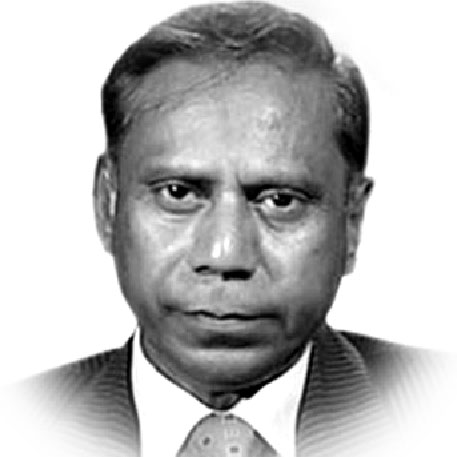Sultan M Hali
KASHMIRIS in India-occupied Kashmir (IoK), Azad Jammu and Kashmir and Pakistan and across world are observing ‘Accession to Pakistan Day’ on July 19. This day has historic significance since the Muslim Conference had declared the date as Kashmiris’ Accession-to-Pakistan Day in 1947. The downtrodden but resolute people of the IoK had determined this auspicious date to affix their final destiny with Pakistan at all costs to transform the glorious visualization of Quaid-i-Azam Mohammad Ali Jinnah vis-à-vis the soon to be independent nation. Kashmiris have been oppressed since 1846, when the princely state of Jammu and Kashmir was created and despite having an over 95% Muslim population, the state was sold by the British East India Company to Hindu Maharaja Gulab Singh for Rs. 75,00,000. The Hindu monarch treated the Kashmiri Muslims as serfs and unleashed a reign of terror to brutalize them.
With the date of 14 August 1947 looming near, the Kashmiris were excited that they will finally be rid of the yoke of oppression of the Hindu Dogra rule. According to the Independence Act of 1947, all princely states of India under the British Rule, were expected to declare their accession with either Pakistan or India, when the two countries gained independence. With the majority population of Muslims in Kashmir, it was a forgone conclusion that Kashmir will accede to Pakistan. The All Jammu and Kashmir Muslim Conference took place on this day in Aabiguzar, a vicinity adjacent to famous Dal Lake in the dazzling city of Srinagar, 73-years ago at the residence of the illustrious Kashmiri leader, late Sardar Mohammed Ibrahim Khan, (later the founder President of AJK) which was chaired by the veteran leader, Ch. Hamidullah Khan because the apex leader, Quaid-e-Millat Chaudhry Ghulam Abbas was incarcerated by the evil ruler Hari Singh for voicing the bona fide will of the people against the Dogra regime. The fêted resolution of the State’s accession to Pakistan was presented in the presence of 59 bold and vibrant leaders.
As was envisioned—the resolution was instantaneously adopted with one-voice amid loud slogans of— Allah-o-Akbar (Allah is Great) and Pakistan Zindabad (Long Live Pakistan) by the emotional participants as well as the large number of Kashmiris, present at the venue of the moot. This was amid a definite ray of hope to have a peaceful and bright future with the end of the century-old despotic Dogra clout, which had clandestinely surfaced with the inking of the notorious Treaty of Amritsar between the British-rule and their sycophant Gulab Singh, on August 6, 1846, opening a Pandora’s Box for the guiltless people, most explicitly for the Muslims of the State. The resolution expressed Kashmiris’ commitment and absolute confidence in the dynamic leadership of the Father of the Nation, Quaid-i-Azam Mohammed Ali Jinnah [RA] with the words: “We salute him (The great Quaid) and congratulate him from the core of our hearts with mammoth delight and soul satisfaction on the auspicious occasion of the establishment of Pakistan.” The state of Jammu and Kashmir, the resolution had recalled has been linked with Pakistan by the Nature—through all perceptions, religiously, geographically, territorially, commercially plus via the unshakable bonds of civilization and culture with a singular fact the heartbeat of each and every Kashmiri synchronizes alone with their brethren in Pakistan. Airing a stern warning to the Hindu Dogra ruler, the valiant people of the state, with more than 95 per cent Muslim population, asked Hari Singh to declare the State’s accession with Pakistan without any vacillation before 14 August 1947 or get ready to face a cataclysmic fate—if this popular voice of the people is mistreated. Alas, the guile and deceit of the Indians ensured that the Kashmiris were denied their freedom. While the Dogra Maharaja was dithering in signing the letter of accession on 27 October 1947, Indian forces landed in Srinagar and illegally occupied Kashmir.
The Maharaja of Kashmir was forced to sign the letter of accession in favour of India at bayonet point. The valiant Kashmiris and volunteers from Pakistan tried to liberate Kashmir from the vile clutches of the Indians; thus, the First Kashmir War ensued. As the liberating forces approached Srinagar, Pundit Jawaharlal Nehru lost his nerve and approached the UN Security Council seeking a ceasefire. The UNSC obliged but also approved Resolutions on Kashmir, which dictated that a plebiscite be held under the aegis of the UNSC to enable the Kashmiris to determine whether they would accede to Pakistan or India. Initially India agreed to abide by the UN Resolutions but fearing that the result of a plebiscite would favour Pakistan, Nehru reneged. The 1965 and 1971 Pakistan-India wars did not change the fate of the Kashmiris so they raised the flag of independence in 1989, which was crushed with brute force by India. More than 1,00,000 Kashmiris were martyred in the struggle.
On 5 August 2019, India abrogated Articles 370 and 35-A of its own Constitution and annexed Kashmir and Ladakh into the Indian Union. The IoK has been in a state of lockdown since then. To change the demographics of IoK, Hindus are being resettled in the Valley. This will increase the number of Hindus vis-à-vis Muslims thus whenever a plebiscite is held, the “majority” Hindus will vote in favour of acceding to India. The plight of the Kashmiris remains unchanged and it is a challenge to the human rights organizations and the UN that such a large body of humanity continues to suffer while their shrieks of pain fall on deaf ears.
—The writer is retired PAF Group Captain and a TV talk show host.










